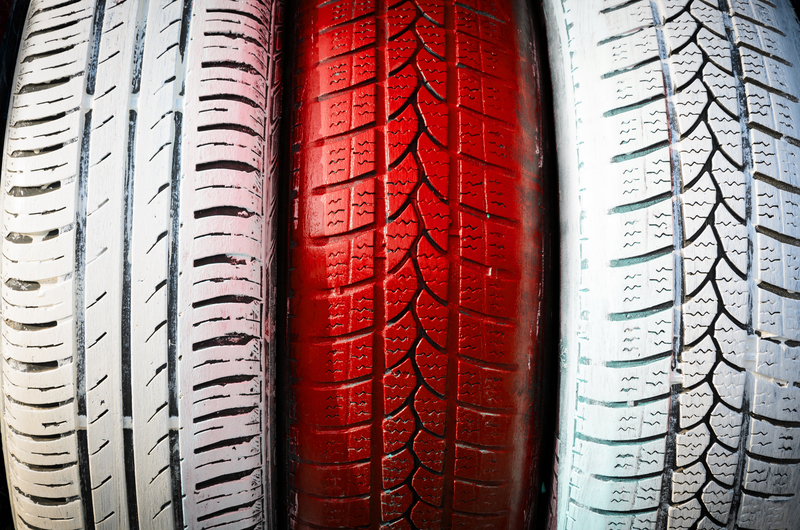Smart Solutions for Plastic Waste Reuse
Posted on 26/08/2025
The rampant use of plastic has become a significant environmental concern. Despite its convenience and versatility, plastic's durability and resistance to degradation have led to global pollution crises. However, smart solutions for plastic waste reuse are emerging, tackling the problem head-on. This article delves into various innovative strategies for transforming plastic waste into valuable resources, with a focus on environmental sustainability and economic viability.
The Plastic Waste Crisis
Plastic waste has become omnipresent, from the deepest ocean trenches to the highest mountain peaks. It is estimated that around 8 million tons of plastic enter the oceans annually, causing severe harm to marine life and ecosystems. Moreover, plastic waste in landfills can take hundreds of years to decompose, leading to long-term environmental issues. With global plastic production forecasted to reach 600 million tons by 2025, finding smart solutions for plastic waste reuse is imperative.

Recycling: Traditional Methods and Innovations
Recycling is one of the primary methods for managing plastic waste. Traditional recycling involves collecting, sorting, and processing plastic materials to produce new products. However, traditional recycling methods often face challenges such as contamination and the limited recyclability of certain types of plastics.
Innovations in recycling technology are addressing these limitations. Advanced processes like chemical recycling and pyrolysis are gaining traction. Chemical recycling breaks down plastics into their basic chemical components, which can be reused to create new plastics or other materials. Pyrolysis, on the other hand, converts plastic waste into valuable products like fuels and chemicals through thermal decomposition.
Biodegradable Plastics
Another innovative solution to the plastic waste crisis is the development and use of biodegradable plastics. Unlike traditional plastics, which persist in the environment, biodegradable plastics break down more rapidly under natural conditions. These environmentally friendly alternatives are made from renewable resources such as cornstarch, sugarcane, and even algae.
While biodegradable plastics present a promising avenue for reducing plastic waste, challenges remain. For example, the conditions required for optimal biodegradation are not always present in natural environments, and some biodegradable plastics can still produce microplastics. Therefore, further research and development are necessary to enhance their effectiveness and sustainability.
Plastic-to-Fuel Technologies
Plastic-to-fuel technologies offer another innovative approach to managing plastic waste. These technologies convert plastic waste into fuels through processes such as pyrolysis, gasification, and depolymerization. The resulting fuels can be used in various applications, from powering vehicles to generating electricity.
These technologies not only help reduce the volume of plastic waste but also create alternative energy sources, contributing to a circular economy. However, the economic feasibility and environmental impact of these processes must be carefully evaluated to ensure their sustainability.
Reusing and Repurposing Plastic Waste
Reusing and repurposing plastic waste are effective strategies for reducing the volume of plastic waste and minimizing environmental impact. Below are some creative and practical methods for reusing and repurposing plastic waste:
- Plastic Roads: Mixing plastic waste with bitumen to create more durable and longer-lasting roads is an innovative solution. Plastic roads have been successfully implemented in countries like India, proving to be a cost-effective and environmentally friendly alternative to traditional road materials.
- Construction Materials: Incorporating plastic waste into construction materials such as concrete blocks and bricks can reduce environmental impact and enhance material properties. These plastic-infused materials are not only durable but also offer improved insulation and reduced weight.
- Furniture and Art: Creative designers and artists are repurposing plastic waste into furniture, sculptures, and other artistic creations. These unique and eye-catching pieces promote environmental awareness and demonstrate the versatility of plastic waste.
- Packaging Solutions: Companies are exploring ways to reduce plastic waste in packaging by designing reusable or refillable packaging solutions. These initiatives help minimize single-use plastics and encourage sustainable consumer behavior.
Community and Policy Initiatives
Addressing the plastic waste crisis requires collective efforts from individuals, communities, governments, and organizations. Community and policy initiatives play a crucial role in promoting plastic waste reuse and reducing environmental impact. Some key initiatives include:
- Awareness Campaigns: Educating the public about the environmental impact of plastic waste and the importance of recycling and reusing plastics is essential. Awareness campaigns can help change consumer behavior and promote sustainable practices.
- Legislation and Regulations: Governments can implement policies and regulations to reduce plastic waste, such as banning single-use plastics, imposing plastic bag levies, and mandating extended producer responsibility (EPR) programs. EPR programs hold manufacturers accountable for the entire lifecycle of their products, encouraging them to design more sustainable products and packaging.
- Community Recycling Programs: Establishing and supporting community-based recycling programs can significantly increase recycling rates and reduce plastic waste. These programs can provide convenient and accessible recycling options for residents and businesses.
- Corporate Responsibility: Companies can take responsibility for their plastic waste by adopting sustainable practices, such as reducing plastic use, designing recyclable products, and participating in circular economy initiatives. Corporate social responsibility (CSR) programs can also support community recycling and environmental initiatives.

The Role of Technology and Innovation
Technology and innovation are key drivers in finding smart solutions for plastic waste reuse. Advances in artificial intelligence, machine learning, and robotics are revolutionizing plastic waste management and recycling. For example, AI-powered sorting systems can efficiently and accurately sort different types of plastics, reducing contamination and improving recycling rates.
Additionally, innovative startups and research institutions are developing new materials and technologies to enhance plastic waste reuse. From biodegradable plastics to plastic-to-fuel technologies, these innovations hold great potential for addressing the plastic waste crisis and promoting sustainability.
Conclusion
The global plastic waste crisis demands immediate and innovative solutions to mitigate its environmental impact. Smart solutions for plastic waste reuse, including advanced recycling technologies, biodegradable plastics, plastic-to-fuel innovations, and creative reuse and repurposing strategies, offer promising avenues for addressing this challenge. Community and policy initiatives, along with technological advancements, further contribute to sustainable plastic waste management.
As individuals, organizations, and governments continue to collaborate and innovate, the potential to transform plastic waste into valuable resources will grow. By embracing these smart solutions and prioritizing sustainability, we can work toward a cleaner, greener future for our planet.
Latest Posts
Planet-Friendly Disposal Strategies
House Waste Removal Made Easy: Top 5 Tools
Hard Rubbish: Identification & Disposal Tips





